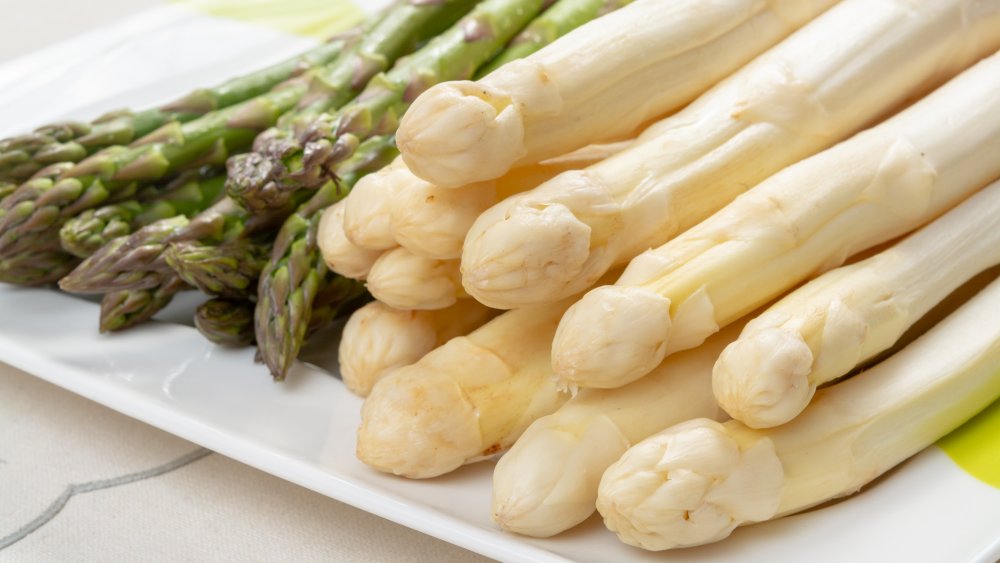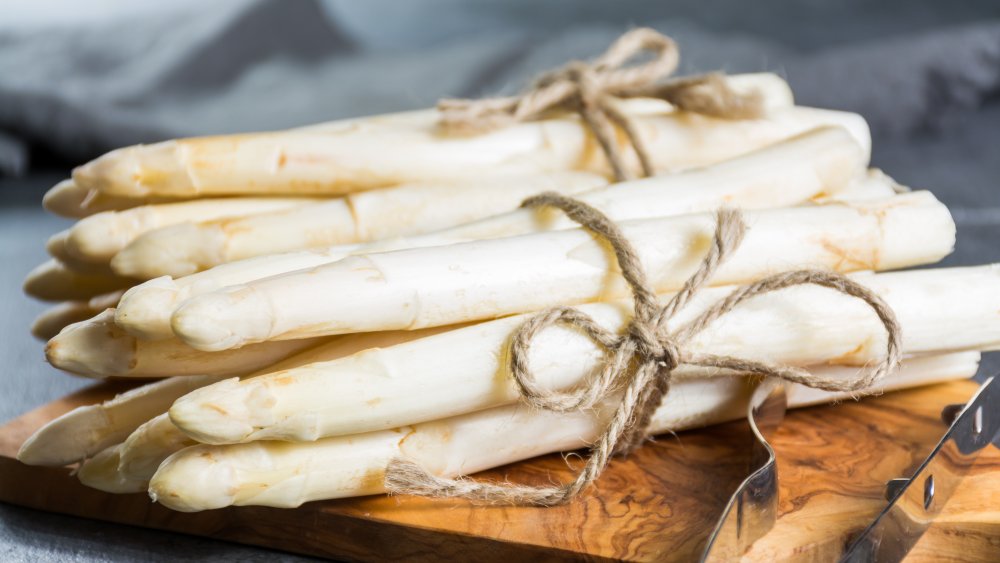This Is The Real Difference Between Green, White, And Purple Asparagus
Most shoppers are familiar with the green variety of asparagus, but the vegetable actually comes in two other colors: white and purple (via The Kitchn). The green, standard variety is most often found in grocery stores. It can be thin, like a pencil, or as thick as a magic marker. Green asparagus can be found with purple tips, but shouldn't be confused with the true purple types.
Purple asparagus comes in two varietals: Purple Passion and Pacific Purple. Purple asparagus has a sweeter taste than the more familiar green type and is best used in salads and other raw preparations because it loses its unique color when cooked. Purple asparagus is purple due to anthocyanin, a pigment that also gives some berries like blueberries, cranberries, and raspberries their distinct dark color (via Properly Rooted). In addition to coloring the vegetable, it's also an antioxidant that can improve the function of the immune system.
The German obsession with white Asparagus
White asparagus is even more unique than the green or purple varieties, as is grown without sunlight, which prevents chlorophyll (the pigment which causes plants to be green) from forming (via Science Daily). It's cultivated under mounds of earth, and is grown almost like a tuber to keep it out of the sun. White asparagus is thicker than either green or purple, and is often more tender.
Like all asparagus, it's grown in the spring (via German Girl in America) and in Germany, where it's a beloved dish, white asparagus season is a big deal. White asparagus season even has a name in Germany — Spargelzeit. Between April and when the season finishes on the 24th of June (when the country celebrates St. John's Day), the country consumes around 125,000 tons each year (via The Guardian). The stalks are cooked in stock and served alongside ham and potatoes with a rich hollandaise sauce or simply melted butter. Unlike other varieties, the skin of white asparagus is bitter and has to be peeled. At German markets, vendors often employ the use of industrial asparagus peelers for people who don't want to carry out the task at home.

